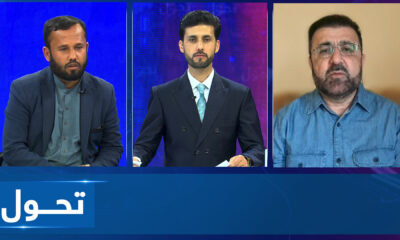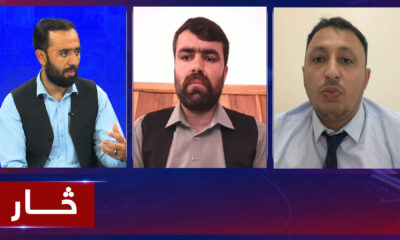Health
Afghanistan’s health minister says health-care should not be politicized
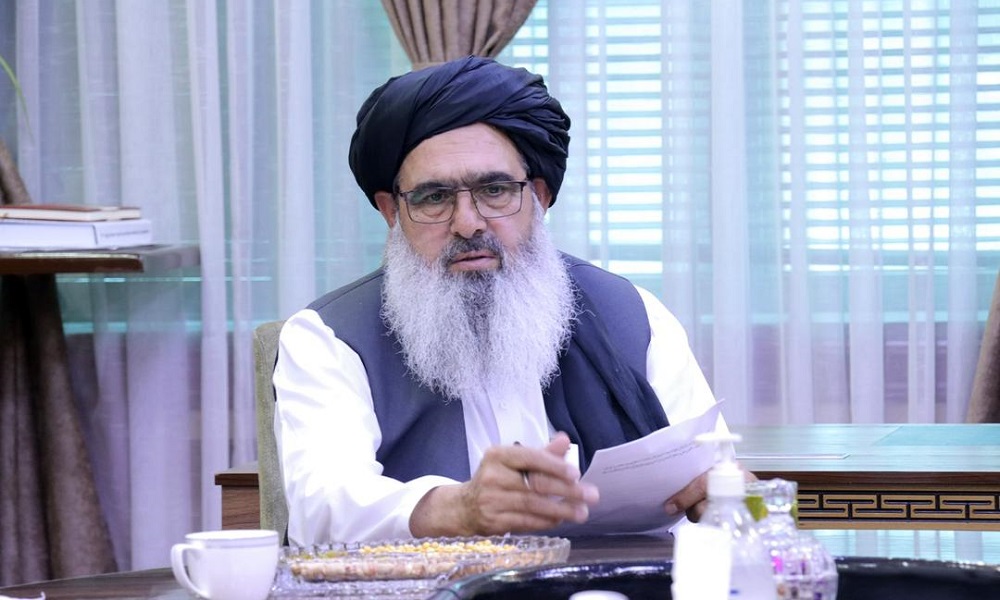
Acting Minister of Public Health, Noor Jalal Jalali, says the issue of health should not be politicized given that Afghanistan has a vulnerable health-care sector and needs international aid.
Addressing a ceremony to mark the opening of a new children’s immunization center, Jalali said the death rate of children in Afghanistan is still high and international organizations should help health officials reduce this rate.
“I mostly say that health and politics should be separated. International partners who claim the rights of mothers and children [should be ensured] should cooperate a lot in the field of health,” said Jalali.
He added that 17 health centers will be built in districts across the country this solar year.
Meanwhile, Deputy Minister for Health Services Abdul Wali Haqqani also spoke at the event and said about two million children have not yet been vaccinated.
According to him, 900,000 children will receive vaccines over the next 18 months.
A representative of UNICEF also stressed the need for the complete eradication of polio in Afghanistan.
“Afghanistan is one of the countries where polio cases still exist. Therefore, this program is an opportunity to reach out to children who have missed vaccination [campaigns], and we strive to protect these children and expand this program to the highest level in the future,” said the UNICEF representative.
According to official data, between four and five million children benefit from the polio program every year.
The World Health Organization (WHO) recently confirmed 18 new cases of polio infection in the country so far this year, a significant increase from the six cases reported in 2023.
Local healthcare workers say these numbers could be higher as many cases will not yet have been detected.
Health
Health services to be expanded urgently for return refugees at Torkham border
Since 1 April at least 44,900 people have returned, with around 58% of them children, according to the UN Refugee Agency (UNHCR).
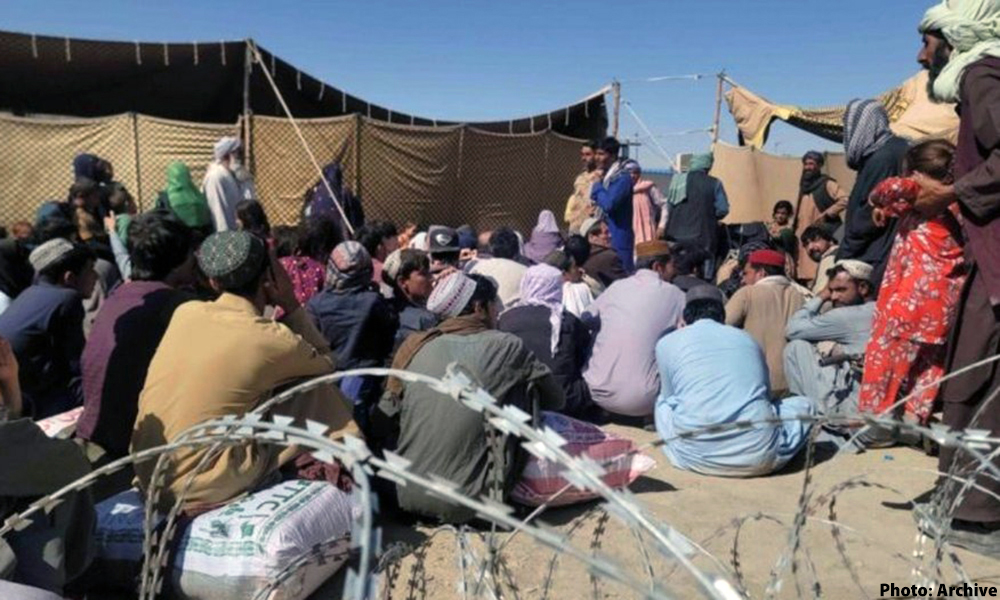
Afghanistan’s health ministry said Tuesday it is expanding health services at Torkham in Nangarhar to cope with the growing number of returning refugees from Pakistan.
According to a statement issued by the ministry, a coordination meeting was recently held to discuss the expansion of health services.
The meeting was chaired by Mawlawi Aminullah Sharif, Director of Public Health in Nangarhar Province, and attended by representatives from various organizations including the World Health Organization (WHO), UNICEF, and other partners.
The meeting focused on improving emergency preparedness and response, enhancing healthcare support for returnees, and addressing current operational challenges, the statement read.
Officials emphasized the urgent need to strengthen health service delivery in response to the growing number of returning citizens.
As a key outcome, participants agreed to increase the number of health facilities and medical staff at the border. This decision aims to ensure timely access to medical care for all returnees and to better manage the health-related pressures caused by the ongoing influx.
Tens of thousands of Afghans are facing dire conditions in makeshift camps after crossing the border from Pakistan, an Islamic Relief assessment team reported on Monday.
“Many are arriving in Afghanistan without any shelter, food, cash or water, and families told us they had to leave all their possessions – including animals and household utensils – behind as they cannot afford to bring them,” Islamic Relief said in the report.
Ramin Sadat from Islamic Relief was part of an assessment team at the Torkham border crossing in eastern Afghanistan. He said this new wave of returning refugees “is unlike anything I’ve seen before. People arrive in droves, covered in dust, crammed onto trucks, and facing a barren border with no basic services in sight. The first thing that greets them is a harsh, windy storm swirling with dust.”
Tens of thousands of families are expected to arrive in the coming days and months, in the wake of the Pakistan government’s announcement that all undocumented individuals and holders of Afghan Citizen Cards (ACC) must leave the country by 31 March 2025 or face deportation.
Since 1 April at least 44,900 people have returned, with around 58% of them children, according to the UN Refugee Agency (UNHCR).
Health
Aid cuts could leave more women dying in pregnancy and birth, UN says
The cuts have had “pandemic-like effects” on health systems globally and could have a “more structural, deep-seated effect”, says WHO director
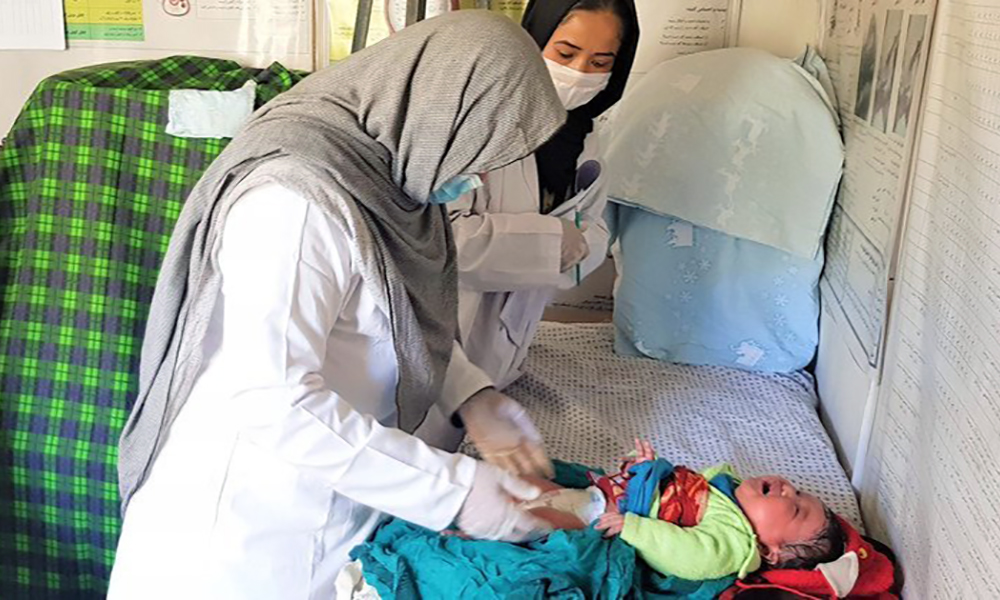
Cuts to aid budgets are threatening to undermine years of progress in reducing the number of women dying during pregnancy and childbirth, and could lead to a rise in deaths, the United Nations has warned.
Globally, there was a 40% decline in maternal deaths between 2000 and 2023, a report by UN agencies including the World Health Organization (WHO) showed on Monday, largely due to better access to essential health services.
That could now go into reverse, the WHO said in a statement accompanying the report which did not mention specific cuts but came in the wake of a foreign aid freeze by the U.S. government and the ending of funding through the United States Agency for International Development (USAID) for many programmes.
Other donor countries including Britain have also announced plans to cut aid budgets.
“One of the headline messages is that the funding cuts risk not only that progress, but we could have a shift backward,” said Dr Bruce Aylward, Assistant Director-General, Universal Health Coverage at the WHO.
The cuts have had “pandemic-like effects” on health systems globally and could have a “more structural, deep-seated effect,” Aylward added.
The WHO said the cuts were already rolling back vital services for maternal, newborn and child health in many countries, reducing staff numbers, closing facilities and disrupting supply chains for supplies including treatments for hemorrhage and pre-eclampsia.
Cuts to other areas, such as malaria and HIV treatment, would also impact maternal survival, the UN said.
Even before the aid cuts led by the United States, things were backsliding in some countries, and progress has slowed globally since 2016, the report said.
In 2023, despite recent progress, a woman still died roughly every two minutes – around 260,000 in total that year – from complications that were mainly preventable and treatable, it added.
The situation was particularly bad in countries affected by conflict or natural disaster, although the U.S. itself is one of only four countries to have seen its maternal mortality rate increase significantly since 2000, alongside Venezuela, the Dominican Republic and Jamaica.
The COVID-19 pandemic also had an impact, the report said: 40,000 more women died due to pregnancy or childbirth in 2021, bringing the total number of deaths that year to 322,000.
“While this report shows glimmers of hope, the data also highlights how dangerous pregnancy still is in much of the world today – despite the fact that solutions exist,” WHO Director-General Tedros Adhanom Ghebreyesus said.
Health
Global organizations warn of health crisis due to aid cuts in Afghanistan

Global organizations are raising alarms about the impact of aid cuts on Afghanistan’s health sector and the reduction in funding for humanitarian organizations operating in the country.
UN-affiliated bodies have stated that the complete suspension of aid from the United States and the reduction of the 2025 budget could lead to the closure or suspension of nearly 2,000 healthcare centers across Afghanistan.
The United Nations Office for the Coordination of Humanitarian Affairs (OCHA) has further warned that if only 25 percent of the required funding is provided, 7 million out of the 9.3 million people in need of medical services will be left without access to healthcare.
The report highlights that without immediate and sufficient funding, child mortality rates could rise sharply, as malnutrition remains one of the leading causes of death for children under the age of five.
The World Food Programme (WFP) has also warned that Afghanistan is facing a severe malnutrition crisis among children, with the number of malnourished children expected to reach 3.5 million by 2025.
Recent reports from the WFP reveal that 8 out of 10 families in Afghanistan are unable to afford a sufficient diet, and 3 out of 4 families are being forced to borrow money to purchase basic food items.
UN agencies have stressed the urgent need for the international community to address the humanitarian crisis in Afghanistan and provide the necessary aid.
This comes after Afghanistan’s Ministry of Economy dismissed reports from some international organizations about the growing poverty in the country, labeling them as exaggerated and far from reality.
-

 World5 days ago
World5 days agoThousands of protesters rally against Trump across US
-

 Latest News5 days ago
Latest News5 days agoPolio vaccination campaign launched in Afghanistan
-

 International Sports2 days ago
International Sports2 days agoIPL 2025: Robo-Dog ‘Champak’ explained
-

 International Sports4 days ago
International Sports4 days agoIPL 2025: 14-year-old Vaibhav Suryavanshi becomes youngest IPL player
-

 Latest News3 days ago
Latest News3 days agoAriana Afghan Airlines increases flights to China
-

 Latest News3 days ago
Latest News3 days agoChina invites various Afghan delegations to attend Shanghai forums
-

 World4 days ago
World4 days agoPentagon chief Hegseth shared sensitive Yemen war plans in second Signal chat, source says
-
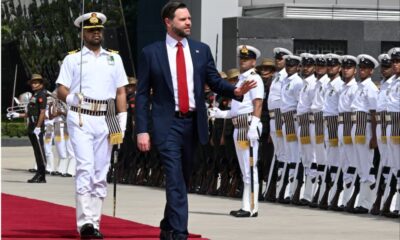
 Regional4 days ago
Regional4 days agoJD Vance arrives in India, to hold talks with Modi under US tariffs shadow


